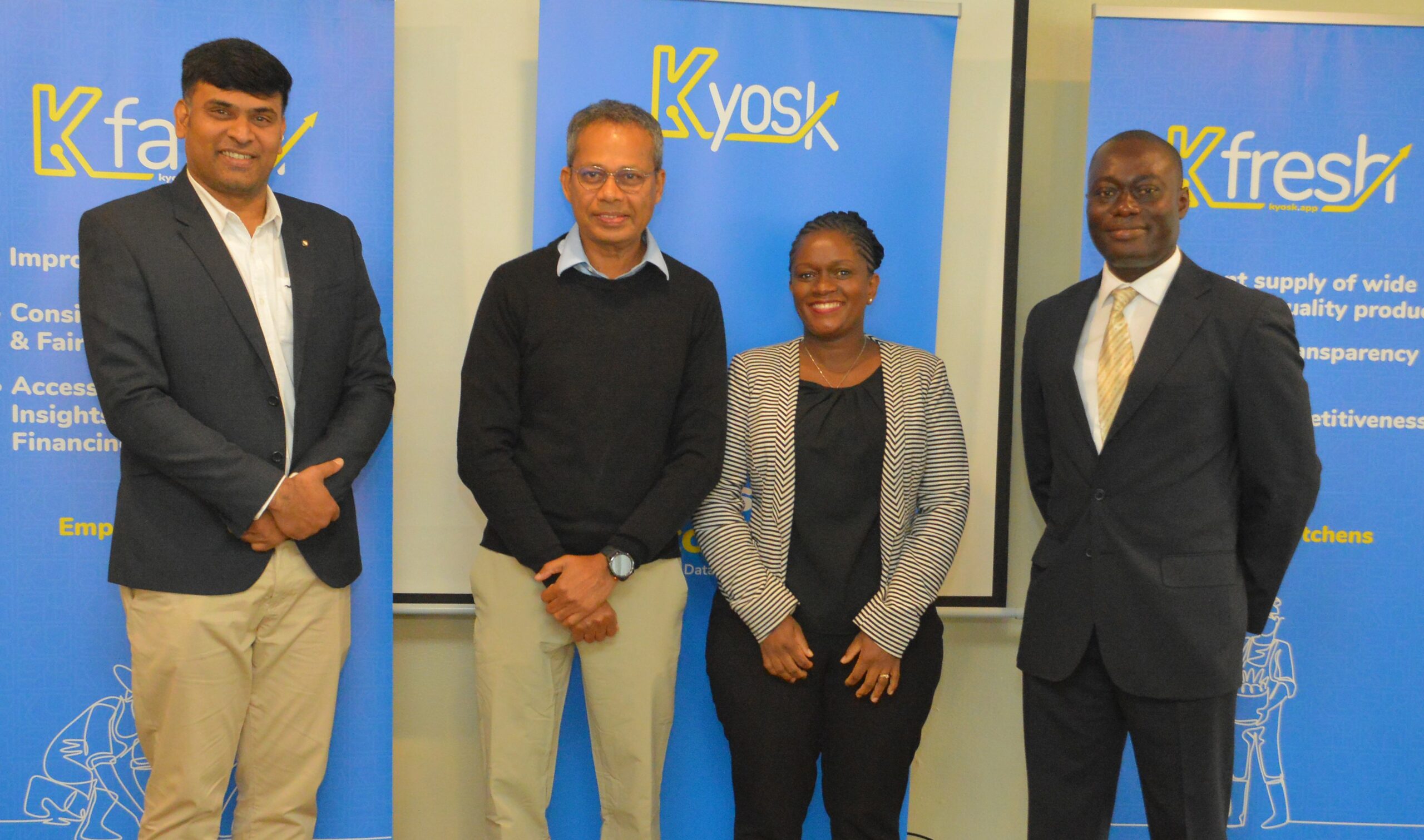advertisement
Kyosk Expands Into African Fresh Produce Market

Kyosk Digital Services has expanded into the African fresh produce market following the launch of its Farm & Fresh line of business, Kyosk is a digital-first and data-led distribution platform.
The expansion is on the back of Kyok’s recent acquisition of KwikBasket, a prominent player in the agricultural industry. It is known as a big player in the distribution of agricultural produce and for providing valuable services and solutions to farmers, commercial kitchens, and other stakeholders in the food chain.
Kyosk specializes in online retail distribution and is driven by a digital-first approach and data-driven insights. The company aims to transform the distribution and accessibility of goods and services in Africa through innovative solutions. By connecting businesses, consumers, and suppliers, Kyosk App facilitates seamless transactions and enhances overall efficiency in the supply chain.
advertisement
With the launch of Farm & Fresh, Kyosk combines its digital-first approach and large-scale operations with KwikBasket’s agricultural expertise to transform the African fresh produce market, creating a more efficient and inclusive ecosystem.
Raphael Afaedor, Co-Founder and CEO of Kyosk Digital Services said that the acquisition marks a major milestone for Kyosk as the company broadens its footprint in the fresh produce market in Africa.
“With KwikBasket’s extensive expertise and resources, we are strategically positioned to unlock the full potential of farming in Africa and create a fair and efficient marketplace that benefits all stakeholders in the food chain,” he remarked, “this expansion presents a unique opportunity for Kyosk to leverage its digital-first and data-led distribution platform to revolutionise the way fresh produce is sourced, distributed, and enjoyed in Africa.”
advertisement
In many regions on the African continent, farmers face numerous challenges due to fragmented and inefficient distribution chains for agricultural produce. Farmers often struggle to reach end-consumers, leading to significant production losses, low income, wastage, and high food prices. Kyosk’s Fresh line offers farmers access to improved yields, consistent market access, fair pricing, essential information and insights, and agri-inputs. By empowering farmers with these resources, Kyosk seeks to support farmers’ growth and success in the agricultural sector.
Additionally, Kyosk Fresh will cater to the needs of restaurants, eateries, and other customers by providing a consistent supply of a wide variety of high-quality products. Kitchens and eateries often face several challenges due to long lead times in the supply chain. Some of these key challenges include food safety and quality concerns, food wastage, high logistics costs, and delays in fulfilling customer orders.
Through streamlined processes, optimised logistics, and enhanced inventory management, Kyosk Farm & Fresh can reduce many of these obstacles. This will enable kitchens and eateries to maintain stability and competitiveness in terms of pricing while ensuring food safety, transparency, and traceability throughout the supply chain.
advertisement
As part of the launch of the Farm & Fresh line of business, the uLima digital platform will be rebranded to Kyosk Farm. uLima was a platform that provided farmers with quality inputs, localised market information, and market linkage.
Kyosk Farm will now build upon the foundation of uLima, leveraging its existing features and functionality while enhancing the overall user experience. For farmers, Kyosk Farm will offer improved yields by providing access to information, insights, and agri-inputs, such as fertilisers, and financing. It will enable farmers to connect with consistent market access and fair pricing, ensuring sustainable income and growth opportunities for their businesses.
The African retail market is valued at approximately US$600 billion and is projected to grow at a rate of 5 percent to 6 percent annually. Kyosk focuses on serving small retail outlets and traditional retailers, which account for over 60% of retail trade in Africa. These retailers are primarily located in low-income, informal urban communities and have historically been inadequately served. They face high transportation costs and have difficulty accessing manufacturers and distributors due to multiple layers of intermediaries. As a result, small retailers often experience frequent stockouts and lost revenue while facing limited access to credit.